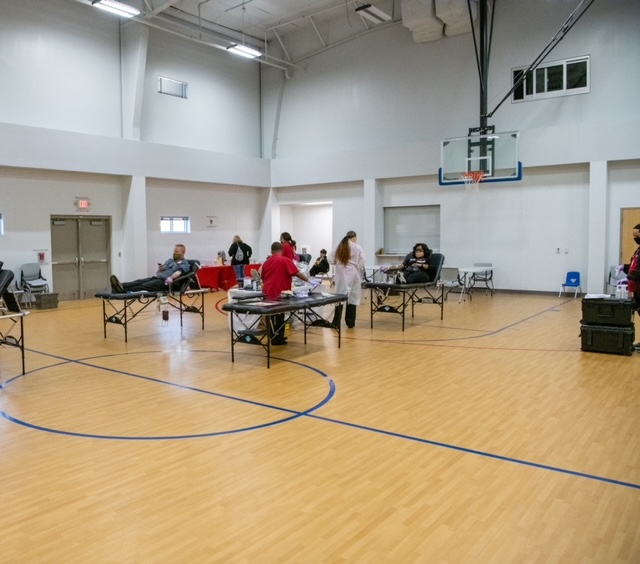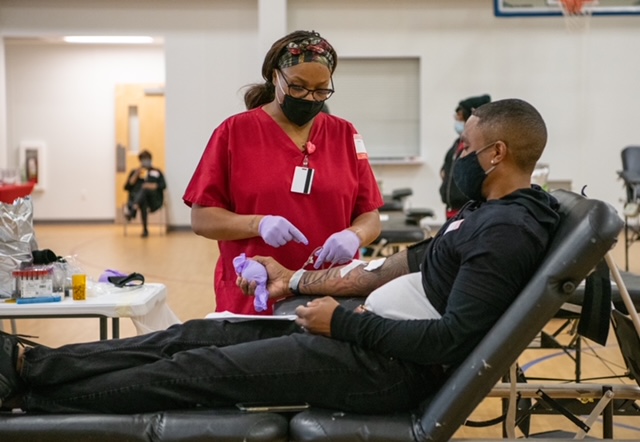Life and Bloodstream Through the Pandemic
Last year was such a challenging time for everyone. As the pandemic swept across the globe, everyone, regardless of age, gender, economic status, racial and ethnic background – found themselves in the same boat.
It was almost like the world hit a pause…and as individuals and families established their new norms in the comfort of their homes – behind facial masks and through virtual interactions – many organizations that have made their mark in humanitarian affairs also found their world upended.

The American Red Cross, known for its blood donation services and emergency response, is one of the many organizations that had to adapt and rethink its course of action as the pandemic continued to spread.
“At the start of the pandemic in March 2020, the Red Cross saw many of its blood drives being canceled as drive hosts were closing their doors to help prevent the spread of the virus and keep their communities safe,” said Jessica Merrill, Director of Biomedical Communications at the American Red Cross.
Merrill added that hospitals adapted their operations to focus on treating COVID-19 patients, canceling many elective surgeries, which resulted in a temporary drop in the demand for blood.
As America’s largest blood donation organization, the Red Cross quickly adapted its operations, implementing new safety measures to ensure it could continue to collect blood safely and meet the needs of the patients at hospitals across the country.
“Red Cross provides nearly 40 percent of the nation’s blood supply to approximately 2,500 hospitals nationwide,” Merrill said. “Through our national network, we’re able to move blood to where it is needed most. Through the support of community partners, Red Cross replaced canceled blood drives with drives at new locations to continue to meet the ongoing need for blood during the pandemic.”
“Red Cross provides nearly 40 percent of the nation’s blood supply to approximately 2,500 hospitals nationwide. Through our national network, we’re able to move blood to where it is needed the most.”
Blood drives were carried out within the safety guidelines of CDC and OSHA – face mask requirements, social distancing, and setting up appointments to manage the flow of the crowd.
The Red Cross has been testing all donations for COVID-19 antibodies. With that, many efforts were directed toward understanding the coronavirus and potential treatments. “Red Cross adapted our blood collection operations to implement a new COVID-19 convalescent plasma donation program to provide plasma from those who recovered from the virus as potential treatment for individuals battling coronavirus,” Merrill said. “We also initiated COVID-19 antibody testing on all blood, platelet and plasma donations to help provide valuable health insights to donors.”
This crucial process is vital to the work of the United Nations. During this COVID-19 pandemic, the UN Sustainable Development Goal to promote and ensure good health and well-being is more important than ever. In addition to implementing safety measures such as social distancing, masks, and vaccinations, the Red Cross plays an important role in educating the community on the importance of testing, safety measures, and the value of helping the community through blood donation.
When it comes to disaster relief services, people’s need for the American Red Cross remained constant throughout the pandemic, providing shelter, food, and other essential resources to help families recover. Some of the assistance had to be delivered virtually to ensure safety, such as providing financial assistance and mental health support.
One of Red Cross’ innovative programs was the launch of Virtual Family Assistance Center that aims to support families who have lost their loved ones to COVID-19. Use of virtual workers and taking advantage of new technology has helped to carry out the organization’s responses to disasters throughout the pandemic.

As the vaccines have become more widely available these days, it’s important for the Red Cross to dispel myths regarding blood donation eligibility in relation to COVID-19 vaccines.
“There is no blood donation deferral time if you received a COVID-19 vaccine currently authorized in the U.S., such as Moderna, Pfizer, and J&J, as long as the donor is symptom free and feeling well at that time of donation,” Merrill said.
As the U.S. makes an effort to move past COVID-19, the Red Cross is faced with lower blood donor turnout while the demand for blood is greater than before. “For many patients in hospitals awaiting surgeries and transplants, battling cancer, or recovering from traumatic accidents, the need for blood continues,” Merrill said. “In fact, in many places we are seeing greater demands than before the pandemic.”
The American Red Cross is dedicated to supporting communities and saving lives – and you can help. For more information or to inquire about blood donation, visit RedCrossBlood.org.



